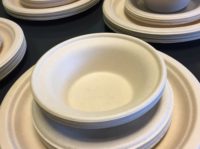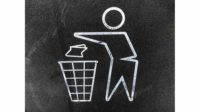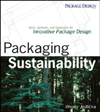Consumer packaged goods companies are all abuzz these days as they implement new sustainability initiatives. Indeed, Harvard Business Review says: “Sustainability is the new mantra for strategic differentiation.” The academic journal goes on to say that being recognized as a “sustainable” organization can enhance brand equity, unlock opportunities to create new markets and launch sub-brands, line extensions and packaging innovations.
One of the most popular concepts is the idea of establishing a circular economy. A circular economy is an alternative to a traditional linear economy (make, use, dispose) in which resources are kept in use for as long as possible, while we extract the maximum value from their use, then recover and regenerate products and materials at the end of each service life — in other words, recycle them. More than 300 global brands have signed on to the concept, pledging to make all their packaging recyclable, reusable or compostable by 2025.
That is a challenging goal. To achieve it, these companies must change the way they do business and find new ways of creating packaging. While many companies aspire to this objective, Unilever seems to be stepping out in front by taking solid actions that may help the company reach its targets.
The company launched its industry-leading sustainable living plan, which has guided the company’s approach to product design and redesign, in 2010 under the direction of former CEO Paul Polman,
“More effective use of materials means lower costs and less waste. It means new sources of value for customers and citizens, better risk management of raw materials, and improved approaches to the supply chain,” according to the company’s sustainability commitment. One of the plan’s main focuses has been plastic. Unilever is finding that its dedication to sustainability is paying dividends.
Some of the necessary transformation has been accomplished by reinventing legacy products, as Unilever has shown with its 28 Sustainable Living Brands, which provided 75 percent of its revenue growth in 2018. These brands speak to consumers’ desire to align their shopping with their values. Small, independent brands in this space are also attracting attention. Unilever has purchased brands with loyal followings such as Seventh Generation, Sundial Brands, and Pukka Herbs. Seven of Unilever’s Top 10 brands — Dove, Knorr, Omo/Persil, Rexona/Sure, Lipton, Hellmann’s, and Wall’s ice cream — are all Sustainable Living Brands.
It is estimated that each day 2.5 billion people use Unilever products spanning 400 brands. The company invests more than $1 billion annually on research and development, of which plastics innovation is a major component. By working to change the plastics market, Unilever is paving the way for its own future.
John Kalkowski, Editor-in-Chief
Direct Line: (248) 786-1249
Email: kalkowskij@bnpmedia.com






